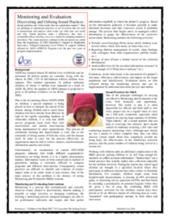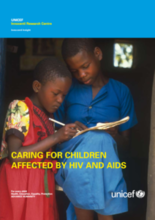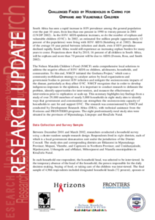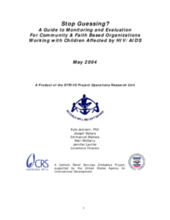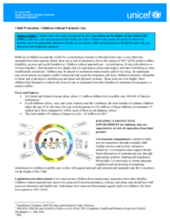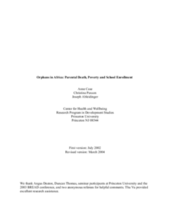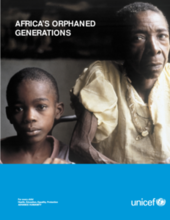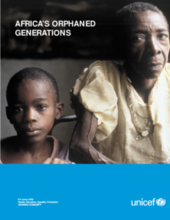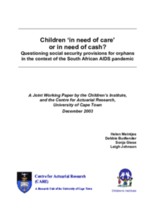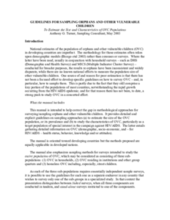Displaying 371 - 380 of 414
This brief outlines Monitoring and Evaluation sound practices of “spot checking” when costs can be prohibitive and the use of “station days”, a participatory method to collect accurate data on children.
Brief summary of the role of informal, institutional and child-headed households as a result of the AIDS epidemic. Includes general standards by which to implement good practices in child care.
Outlines key findings of survey conducted to investigate the challenges faced by households caring for OVC in South Africa. Conclusion delineates six potential responses to community needs.
Monitoring and Evaluation and Operations Research guidelines for organizations implementing OVC/Children Affected by AIDS programs.
A brief fact sheet on the multilevel support needs of children without parental care. Includes a brief section on statistical data and examples of UNICEF action in several countries around the world.
Research on the incidence, living arrangements, and causes of lower school enrollment of orphans in Sub-Saharan Africa.
This paper reports on the life circumstances of today’s orphaned children in Africa with new data and fresh analyses. The report presents a strategy for ensuring that all of Africa’s orphaned children have a safe, healthy and well-educated childhood, establishing the foundation for a productive adult life and for their countries’ overall development. Therefore, this paper encourages hope in the face of an epic disaster as it offers the possibility of change for those already orphaned and for the generation to come.
Current statistics and projections of HIV prevalence and impact on children and families in Sub-Saharan Africa. Outlines a strategy for action which includes collaborative efforts on the part of governments and child-focused agencies to strengthen families, build community capacity and increase awareness.
Research study of the current social security provisions for orphans in South Africa, with a comparison of four alternative cash grant scenarios. Recommends a universal income support system for all children in need.
A manual which seeks to fill the gap in the methods of estimating the population of orphans and vulnerable children in developing countries. The manual includes thorough guidelines on sampling approaches.

